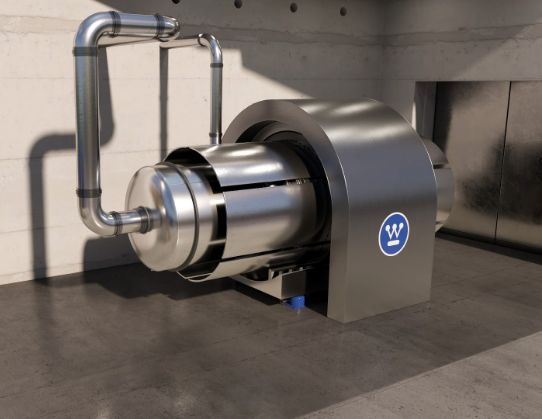A Memorandum of Understanding (MoU) and a master services agreement has just been signed by Westinghouse Electric Company and McMaster University with the aim to assist in the commercialization of the Westinghouse eVinci microreactor.
McMaster University is based in Hamilton, Ontario, Canada. Under the MoU and service agreement, Westinghouse will collaborate on the research and development of the eVinci microreactor. This includes material irradiation and examination studies.
The agreements build on existing collaboration arrangements between the company and university since 2022 which have included McMaster “completing a material properties literature review along with corresponding material handbooks to inform engineering design and determine future testing needs”.
McMaster is currently expanding its reactor testing capabilities with a high-temperature irradiated test rig “which will enable Westinghouse to gather key testing data to support design confirmation and subsequent licensing approval of the eVinci microreactor”.
Westinghouse’s eVinci is a heat pipe-cooled microreactor which can produce up to five megawatts of electricity with a fifteen megawatts thermal core design. The
TRi-structural ISOtropic (TRISO) particle fuel-fueled reactor core is designed to run for eight or more full-power years at full power before needing to be refueled. The factory-built and assembled eVinci reactor can be shipped to the operational site in a container to provide versatile, scalable energy for a variety of applications.
Jon Ball is the President of Westinghouse eVinci Technologies. He said, “McMaster University is a strong Canadian research partner, offering years of valuable experience and insights from operating its research reactor that can be applied to our microreactor technology. By broadening our collaboration and leveraging McMaster’s unique capabilities we can further accelerate the commercialization of our eVinci microreactor.”
Andy Knights is the McMaster’s acting Vice-President of Research. He said, “We’re proud to partner with Westinghouse and contribute our research expertise and world-class suite of nuclear facilities in support of their eVinci microreactor program. As Canada’s Nuclear University, McMaster is committed to working alongside our industry partners to advance materials and energy solutions for a cleaner world.”
Earlier this month, the U.S. Nuclear Regulatory Commission (NRC) approved the Principal Design Criteria. This is a key milestone towards licensing the eVinci microreactor in the U.S. Principal Design Criterias (PDC) define how each part of the reactor’s structures, systems, and components will function, and ensure that the design conforms to design bases outlined in NRC regulations. Approval of these PDCs provides a clear path to licensing the eVinci microreactor for deployment. They also simplify and streamline the licensing process for customers, according to Westinghouse.
The Canadian Nuclear Safety Commission (CNSC) is also conducting a Vendor Design Review for the eVinci microreactor. It is currently assessing it as Phase 2 which “has a focus on identifying potential fundamental barriers to licensing the NPP design in Canada. It serves to give the CNSC a significant level of assurance that the vendor has considered CNSC design requirements. The results of a Phase 2 review help the vendor develop a preliminary safety analysis report to support an eventual application for a license to construct.”


Leave a Reply